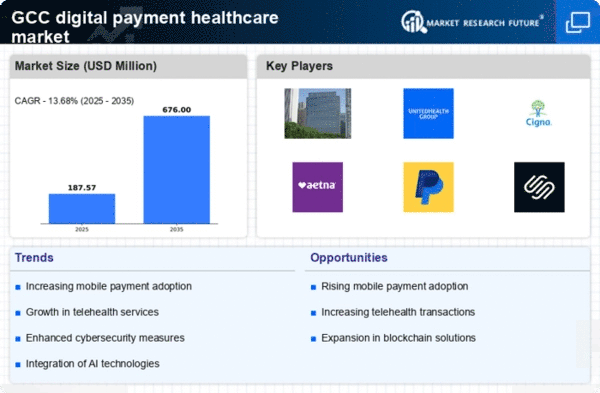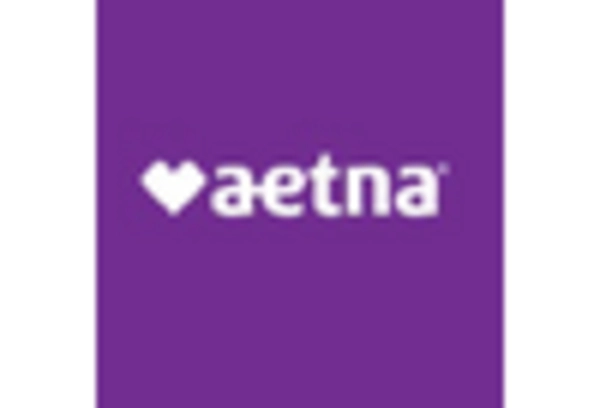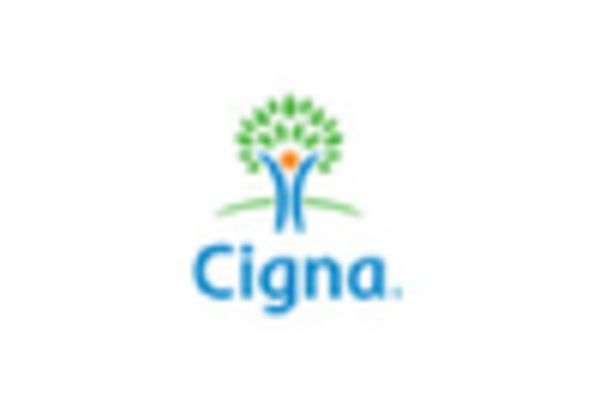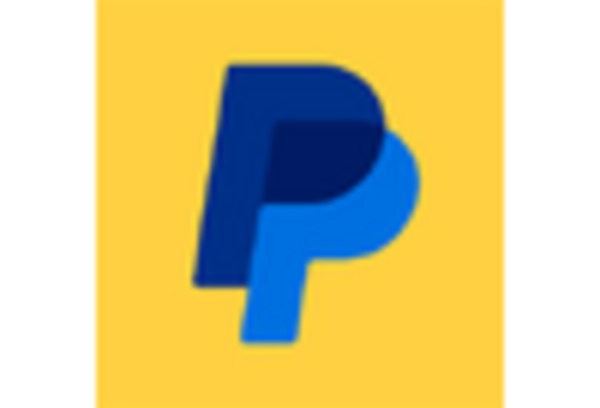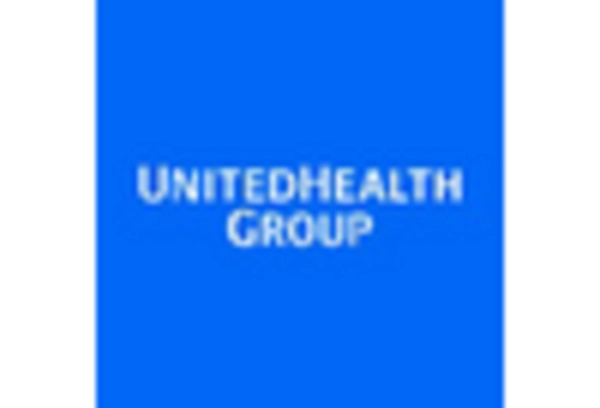Government Initiatives and Regulations
Government initiatives in the GCC region are playing a pivotal role in shaping the digital payment-healthcare market. Regulatory bodies are increasingly promoting the adoption of digital payment solutions to enhance healthcare accessibility and efficiency. For instance, various governments have introduced policies aimed at digitizing healthcare records and payment systems, which is expected to increase the market's growth rate by approximately 15% annually. These initiatives not only streamline payment processes but also ensure compliance with international standards, thereby fostering trust among consumers. As regulations evolve, healthcare providers are likely to invest in digital payment solutions to meet compliance requirements, further driving the growth of the digital payment-healthcare market.
Rising Consumer Demand for Convenience
Consumer demand for convenience is significantly influencing the digital payment-healthcare market in the GCC. Patients increasingly prefer digital payment methods that offer ease of use and quick transactions. Surveys indicate that over 70% of patients in the region express a preference for digital payment options over traditional methods. This shift is prompting healthcare providers to adopt innovative payment solutions that cater to consumer preferences. The convenience of digital payments not only enhances patient satisfaction but also reduces administrative burdens on healthcare facilities. As a result, the digital payment-healthcare market is likely to see continued growth as providers strive to meet the evolving expectations of their patients.
Growing Investment in Health Tech Startups
The digital payment-healthcare market is witnessing a surge in investment in health tech startups within the GCC. Venture capital funding for health tech has increased significantly, with investments reaching approximately $500 million in 2025. This influx of capital is fostering innovation in digital payment solutions tailored for the healthcare sector. Startups are developing cutting-edge technologies that streamline payment processes, enhance user experience, and improve overall healthcare delivery. As these innovations gain traction, they are likely to reshape the digital payment-healthcare market, making it more competitive and responsive to the needs of both providers and patients.
Increasing Adoption of Telehealth Services
The digital payment-healthcare market is experiencing a notable surge in the adoption of telehealth services across the GCC region. This trend is driven by the growing demand for remote healthcare solutions, which has been further accelerated by advancements in technology. As of 2025, it is estimated that telehealth services account for approximately 30% of all healthcare consultations in the region. This shift necessitates efficient digital payment systems to facilitate seamless transactions between healthcare providers and patients. The integration of digital payment solutions enhances the overall patient experience, allowing for quick and secure payments, which is crucial in a rapidly evolving healthcare landscape. Consequently, the digital payment-healthcare market is likely to expand as more healthcare providers adopt telehealth services and require reliable payment processing solutions.
Technological Advancements in Payment Systems
Technological advancements are transforming the digital payment-healthcare market, particularly in the GCC region. Innovations such as blockchain technology and contactless payment systems are enhancing the security and efficiency of transactions. As of 2025, it is projected that the adoption of blockchain in healthcare payments could reduce transaction costs by up to 20%. These advancements not only improve the speed of transactions but also bolster data security, addressing one of the primary concerns of consumers. As healthcare providers increasingly leverage these technologies, the digital payment-healthcare market is expected to expand, driven by the need for secure and efficient payment solutions.


